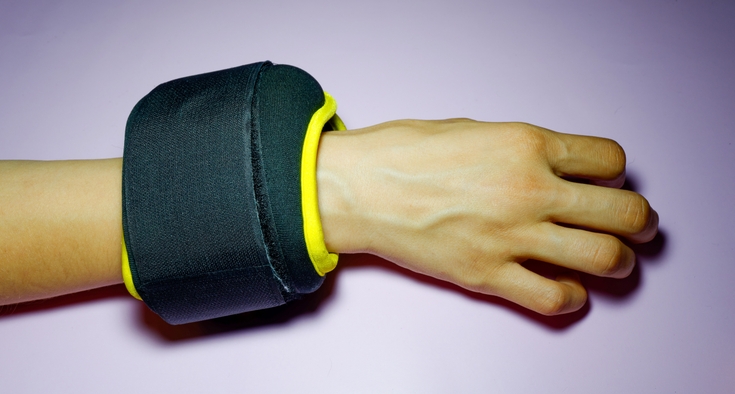Since the internet became widely accessible, doctors have cautioned people about using online sources to diagnose their own health conditions.
And today, relying on “Dr. Google” can be even more problematic. That’s because instead of getting a list of websites, many search engines now use artificial intelligence to offer answers to user questions. These AI tools often provide accurate health summaries by sourcing reputable, doctor-reviewed articles.
At the same time, generative AI technology is still in its early stages and can "hallucinate," presenting false or misleading information and even citing nonexistent sources. (It’s known as “generative” because it’s generating entirely new content from information harvested from the internet.)

Many AI tools are even labeled with disclaimers that generative AI is experimental, and to consult a professional for medical advice. As with any emerging technology, it will take time to understand how patients can best use AI to guide their health decisions, said Dr. Brian Ingold, a family medicine physician at Novant Health Arboretum Family and Sports Medicine in Charlotte.
Here, he offers guidance on ways people could use AI to better understand their own health and the pitfalls of blindly accepting AI answers.
A checkup is your first step toward good health.
Should people use AI to research their health?
In general, when a patient researches symptoms or conditions prior to a doctor’s visit, it can enrich the discussion. It does spur us to have a deeper conversation, because they have already put forethought into what they want to ask and discuss. It’s important for me, as a provider, to be open to all avenues of information.
It’s important to remember, however, that the output of any AI tool is going to be totally dependent on the input. The average person is going to be operating from a level that is a bit limited, in that they can input their symptoms, but not necessarily guide the program in the right direction with additional details.
A trained provider would ask more probing questions or do a physical exam to be able to find the answer. For patients, I would recommend using AI only as extra preparation for a visit with a doctor who knows you well.
What are the drawbacks of using AI to research your health?
We have to remember that the information AI uses to gather a summary is based on sources on the internet that may or may not have been verified by a doctor or similar expert. To take things further, it may not be based on any information at all. AI, in some cases is fabricating information and attributing it to sources that do not exist, which is called a hallucination – a known problem with any AI tool in this early stage of development. This has occurred with one of my own patients who sought recommendations for their health condition via ChatGPT. It included a citation of a journal article that did not exist summarizing a clinical trial that also did not exist, as I learned when I probed deeper.
And you don’t have to sign into ChatGPT or another AI tool to be impacted. AI is embedded in many of the everyday tools we use online. For example, when searching on Bing or Google, you used to have to click through links in your search results and parse out the information yourself.
Now, many search engines use AI to summarize your search results right at the top of the page. All users should be mindful that some of these results may be hallucinations.
Again, searching the internet or using AI is limited to what a user types in. That person could perhaps find a clinical trial about treating their health condition. What they don’t know is whether that information still holds true, has been later disproven by other research, or has otherwise not withstood the test of time.
This is where a trusted provider with years of education, and more importantly, years of taking care of people and understanding the gravity of what wrong decisions can lead to, is so valuable. This is where the human element of what we do really shows through.
Best doctors. Amazing nurses. Remarkable care.
What types of health information do you recommend people seek through AI?
There’s plenty of good that could come out of a solid AI model, especially one developed specifically for health care. In general, a person could ask about lifestyle interventions for chronic problems, like how they might modify their diet and exercise routines to manage obesity, high blood pressure or type 2 diabetes.
Another good example is to use research as a framework for the discussion in an upcoming appointment. For example, you might research medications used to treat a certain condition and understand the advantages or disadvantages of each of them. This would allow the provider to say, ‘I would recommend some of this based on these clinical trials, and I wouldn't recommend the other links for these reasons.’ This could really streamline the conversation with your provider and allow patients to be more empowered about their own health.
When should patients not use AI to research their health?
People should not use AI for an acute, or urgent, issue when time is of the essence. For example, if someone is concerned they may have symptoms of a heart attack or stroke, this is where the experience of trained professionals asking the right questions becomes incredibly important. This is where AI would have the least utility.
There have been multiple occasions when people will call our office with a problem and our providers can triage in the moment. We know whether that’s a patient where we would have a higher clinical suspicion for something, or a lower suspicion based on their specific risk factors, which AI would not know. You can’t substitute AI for the knowledge trained providers have after seeing that same scenario over and over again in their training and day-to-day experience.
How we report at Healthy Headlines
Each story published on Healthy Headlines is produced by Novant Health team members or freelance writers with a substantial background in health care reporting. Novant Health doctors and other team members are interviewed and directly quoted for nearly all stories. Every story is reviewed by a doctor, clinician or other medical professional. The stories also go through several rounds of editing prior to publication.










